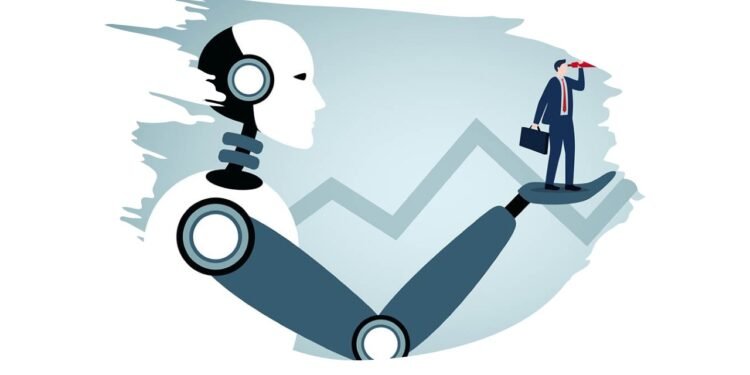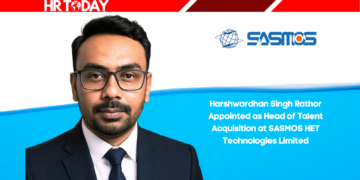In the ever-evolving & fast pace landscape of work, Human Resources (HR) professionals find themselves at the forefront of change, especially in the wake of the rise of Artificial Intelligence (AI). The fusion of cutting-edge knowledge, as exemplified by AI-powered tools, has become instrumental in shaping HR strategies. The integration of AI is not only a disruptive force, as introduced by Clayton Christensen, but also aligns with the transformative principles outlined in ‘ExO 2.0 (Salim Ismail & Peter Diamandis),’ offering organisations a strategic playbook for 10x growth and impact in HR management. As more organizations understand the transformative power of AI, HR strategies are adapting to ensure that the workforce is prepared for the challenges and empowered to drive it. This article explores the real-world insights of how HR strategies are evolving in the world of AI.
Talent Acquisition:
Vedanta employs cutting-edge AI-powered tools in its recruitment process as part of Project Panchhi, a transformative initiative aimed at recruiting & empowering 1000 girls. A completely transparent AI platform assesses video interviews, analysing not only the content of responses but also non-verbal cues. This assists HR professionals to streamline and enhance the recruitment process, ensuring efficiency and accuracy in identifying talented individuals for participation in Project Panchhi. Embracing a 100% digitalized process results in a substantial reduction of transactional tasks, allowing for a heightened emphasis on transformative & qualitative work.
Strategic Workforce Planning:
IBM through the utilization of advanced analytics, AI, and machine learning, has pioneered an efficient method for predicting and inferring skill supply. This innovative approach consistently evaluates and quantifies the skills and their depth within the workforce through automated processes. The result is a dependable baseline that allows continuous monitoring of skill position and furnishes essential details for precise and targeted workforce. The workforce planning model incorporates AI in informing salary decisions, aligning with IBM’s skill-based people strategy.
Employee Experience:
Microsoft has integrated AI into its HR strategies to enhance employee experience and well-being. Microsoft’s virtual assistant “Viva”, powered by AI, provides employees with instant support and information, improving accessibility and reducing administrative burdens. Additionally, Microsoft has developed tools that use AI to analyse employee sentiment, helping HR gauge overall well-being, engagement levels and identify areas for improvement in the work environment for disengaged employees.
Talent Mobility:
Google has leveraged AI to revolutionize its internal talent deployment platform, addressing challenges in workforce organization and enhancing employee mobility. The AI-driven system, employs a marketplace-based approach where employees and managers bid for assignments, fostering agility and flexibility. The use of AI algorithm ensures optimal matching based on preferences, mirroring a proven method in the medical field. The system has improved trust via increased transparency, employee control over deployment, and a normalized culture of internal mobility, showcasing the positive impact of AI in reshaping HR practices.
Remote Work:
Zoom, a video conferencing platform has incorporated AI features to enhance virtual collaboration as world moves towards remote work. Zoom’s AI-driven tools include real-time language translation, transcription services, drafting tools and background noise cancellation, improving the overall remote work experience. HR strategies at companies embracing remote work leverage these tools to ensure seamless communication and collaboration across distributed teams.
These few examples highlight how organizations across various industries are integrating AI into their HR strategies to navigate the challenges and opportunities of the future of work. By embracing AI, HR professionals are not only adapting to the AI era but also shaping a future workplace that balances technological advancements with human-centric values. These organisations provide valuable insights for HR practitioners seeking to lead their organizations through the evolving landscape of work.










